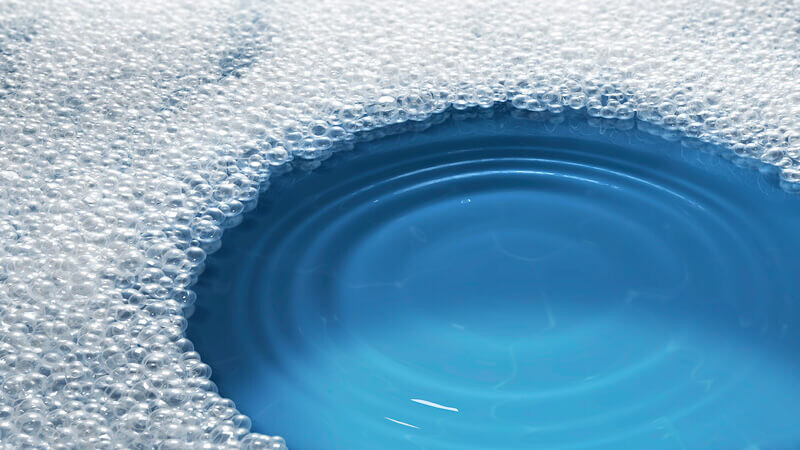The Importance of Defoamers in Industrial Processes and Applications
Wiki Article
The Function of Defoamers in Enhancing Item Top Quality and Performance
Defoamers offer as essential ingredients that alleviate this problem, ensuring smoother production workflows while improving the aesthetic and useful features of the last products. The option of the proper defoamer can be essential to attaining ideal results, raising crucial concerns about formula compatibility and efficiency metrics that warrant further exploration.Comprehending Defoamers
Recognizing the duty of defoamers is essential for maintaining product top quality throughout different industries. Defoamers are chemical additives created to reduce and protect against the formation of foam in fluid systems, which can negatively impact processes such as mixing, filling, and surface stress. Lathering can cause inefficiencies, product problems, and compromised aesthetic charm, making defoamers a critical element in producing operations.In commercial applications, defoamers assist to enhance item uniformity and security. The effective use of defoamers not only makes certain smoother manufacturing processes but likewise contributes to premium product performance.
In addition, the selection and solution of a defoamer should line up with details application needs, such as compatibility with various other ingredients, performance under differing temperature and pH conditions, and possible regulatory restrictions. Eventually, understanding defoamers' features and their significance in numerous formulas is critical for optimizing production and making sure the best quality end products.
Sorts Of Defoamers
Defoamers can be classified into numerous types based on their make-up and device of action. The main types consist of silicone-based, non-silicone natural, and inorganic defoamers.Silicone-based defoamers are among the most efficient, largely due to their ability to spread swiftly on the fluid surface area and interfere with foam formation. Their distinct chemical structure enables for premium security, making them suitable for high-temperature applications and environments with varying pH levels.
Non-silicone organic defoamers, frequently composed of fatty acids or natural oils, are valued for their biodegradability and lower toxicity. These are generally utilized in food and beverage applications where safety and environmental impact are critical.
Inorganic defoamers, that include substances like talc or calcium carbonate, act by enhancing the density of the liquid, thereby reducing foam security. They are often made use of in commercial procedures where compatibility with various other materials is not an issue.
Each sort of defoamer has distinct advantages and constraints, permitting customized services depending on the specific frothing concerns experienced in various applications. Comprehending these differences is crucial for enhancing performance and achieving preferred item quality.
Applications Across Industries
Numerous markets leverage defoamers to enhance item quality and functional efficiency. In the food and drink industry, defoamers are essential in processes such as developing and dairy manufacturing to stop foam formation, which can bring about ineffectiveness and product incongruity. By managing foam, manufacturers can make sure better return and a more uniform product.In the pharmaceutical market, defoamers play a vital duty in the formulation of fluid medications, where extreme foam can hamper mixing and precise application. Their use aids maintain the stability of the formulations and assists in smoother manufacturing processes.
The paint and layers industry likewise counts on defoamers to enhance the efficiency of items during application. By lessening foam, these ingredients ensure a smoother surface and boost the aesthetic high qualities of the last item.

Advantages of Making Use Of Defoamers
While the application of defoamers differs throughout sectors, their advantages continually improve product high quality and process efficiency. One significant benefit is the decrease of foam formation during manufacturing procedures, which can or else result in production hold-ups and incongruities in item high quality. By reducing foam, defoamers enable a smoother circulation of products, assisting in much more efficient procedures and minimizing the possibility of equipment breakdowns.Furthermore, using defoamers can boost the look and texture of last products. In sectors such as coatings, paints, and food handling, excessive foam can jeopardize the aesthetic looks and general quality, while the proper defoamer application guarantees a consistent surface and preferable attributes. Additionally, defoamers can add to cost financial savings by reducing waste throughout production and maximizing using raw products (defoamers).
.png?width=250&height=140&name=35722%20BOR%20Defoamers%20Ad_V8-BACKGROUND%20(2).png)
Picking the Right Defoamer
Picking the appropriate defoamer is crucial for optimizing manufacturing processes and making sure product high quality. The choice of defoamer influences not only the performance of foam control yet additionally the total efficiency attributes of the end product. Factors to consider include the type of application, the chemistry of the formulation, and the ecological problems under which the product will be made use of.Various industries may call for certain defoamer types, such as silicone-based, organic, or polymeric defoamers. click to find out more Recognizing the compatibility of the defoamer with the main components is vital to avoid damaging responses that could compromise item integrity. Additionally, the defoamer's performance in different temperatures and pH degrees should be evaluated to make certain constant performance.
Examining the defoamer in small-scale applications can offer valuable understandings into its efficiency and suitability. Factor to consider of regulatory compliance, especially in food, drugs, and cosmetics, is critical in choosing a defoamer. Ultimately, a complete analysis of these elements will certainly lead to the choice of a defoamer that not just controls foam successfully yet likewise boosts the top quality and performance of the last item.
Verdict
Read More Here
Finally, defoamers are crucial additives that substantially boost item quality and performance across various markets. By successfully lowering foam development, these representatives not only enhance operational efficiency but also contribute to the practical and aesthetic stability of products. The tactical selection and application of defoamers result in cost savings, optimized resource use, and increased customer satisfaction. In general, the significance of defoamers in industrial processes can not be overemphasized, as they play a vital role in attaining regular and high-quality end results.
Foaming can lead to inefficiencies, item problems, and compromised visual charm, making defoamers a critical component in making procedures.

Report this wiki page